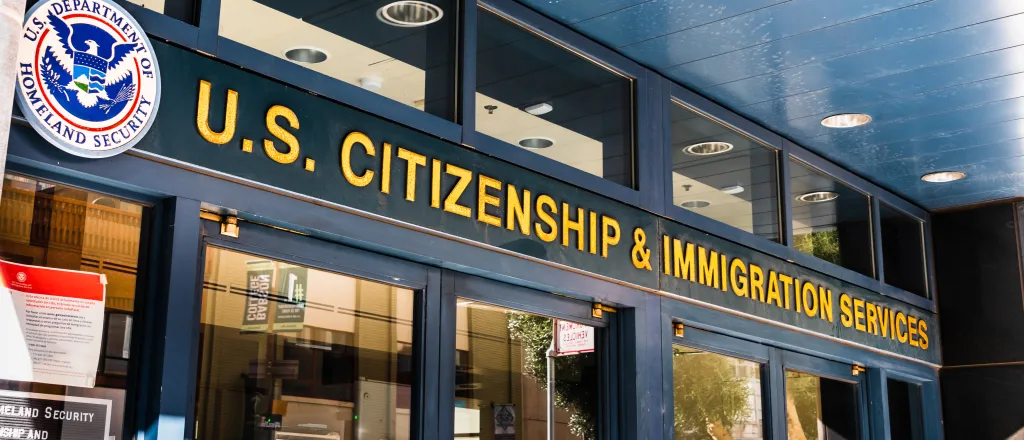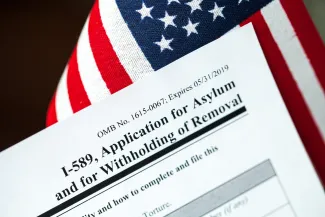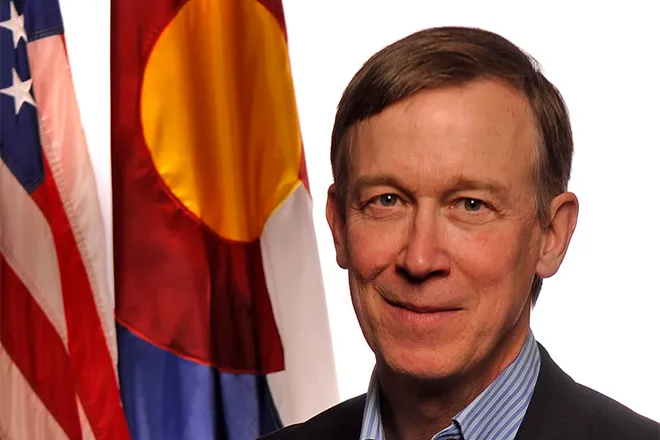
Colorado refugee resettlement agencies scramble for funding to help new arrivals
© Sundry Photography - iStock-1189510256
Resettlement service agencies in Colorado are left to search for their own funding to continue helping newly arrived refugees after an executive order President Donald Trump signed on his first day in office stopped their funding.
Trump issued an executive order halting the U.S. Refugee Admissions Program, which allows people unable to return to their home country for fear of violence or persecution to legally reside in the U.S. after an extensive vetting process. He will decide based on a report from the secretary of state and the secretary of Homeland Security whether resuming the program “would be in the interests of the United States” after 90 days.
Jewish Family Services of Colorado has offered refugee resettlement services over the last four years. Jessica Zeidman, chief advancement officer at JFS, said last year, her organization helped 190 refugees resettle in Colorado, and they had signed a contract with the federal government to help 175 more people this year.

After the November election, Zeidman said the organization anticipated changes to the refugee program and looked to the thresholds Trump imposed in his first term to help them prepare, but “were not expecting him to close it completely.” The president proposes annual thresholds that limit how many refugees will be permitted in the country, which need to be approved by Congress.
The organization quickly mobilized to “bring in as many refugees as we could” ahead of January 20. Between October 15 and January 15, Jewish Family Services resettled 137 people in Colorado, more than double the typical number of 60 people they would help during that time. Zeidman said her team was at the airport on New Year’s Day picking up families. That included people from Afghanistan, Sudan, Iraq, Venezuela, Burma, Syria, Columbia and the Democratic Republic of Congo.
The stop work order included in Trump’s executive order has been “the most detrimental,” Zeidman said. That action voided the contract HIAS, the parent organization overseeing refugee resettlement at Jewish Family Services, had with the Department of State to provide money to refugees during their first 90 days in the U.S. Zeidman said federal funding made up about 60% of the JFS budget for refugee resettlement.
“Every individual, that includes babies, they are promised this money, and with the stop work order, that money has all disappeared,” Zeidman said. “So even families that we brought in on January 19 to resettle here in Colorado are not getting the funds that they’ve been promised.”
Rhossy Ouanzin, development and communications manager at the African Community Center of Denver, said his organization helps refugees in their first 90 days adapt to American culture and find a job, but they will help any of their clients for up to five years after they arrive.
The center previously received funding through the reception and placement program, but with no federal funding so far this year, the organization had to lay off a couple of staff members who have worked with the center for years. Ouanzin said African Community Center has worked to build and maintain its capacity to help more refugees for years, and he’s concerned that additional cuts could lead to more layoffs and a reduced capacity.
The organization had already raised private donations to help refugees once their first 90 days of sponsorship by the federal government ended, but Ouanzin said the community has stepped up with donations to help those still within their first 90 days too.

“We have the moral obligation of serving and helping the people who are here, because if we don’t do it and we let them go, then there’s nobody else to help them,” Ouanzin said.
The African Community Center helped about 1,300 refugees resettle in 2021 and 2022, 1,252 refugees in 2023, and 1,375 refugees in 2024. The five countries the center helped the most people from last year were Cuba, Afghanistan, Ukraine, the Democratic Republic of Congo, and Haiti. Ouanzin said it’s hard to gauge how many refugees the organization will help this year, because they don’t know how long the resettlement and placement program will be suspended.
Refugees who have arrived most recently are the most vulnerable, said Dona Dalton, marketing and communications manager at Lutheran Family Services Rocky Mountains, because they have the least familiarity with their communities and have not developed a foundation.
“They are losing valuable support for housing and basic needs,” she said in a statement. “In addition, those that were already screened and approved to come to the U.S., including 294 scheduled to LFSRM locations, have been abruptly left in limbo as well as refugees already in the U.S. waiting for loved ones to join them.”
Zeidman said the stop work order has led to “a lot of turmoil” at Jewish Family Services, including budget crunching, ongoing conversations with other agencies, and fear among staff for both their job security and their clients’ wellbeing. She said the organization is “committed to raising private funds” to continue to support its staff and clients.
“There’s a barrage of executive orders and news every day, and so we’re just advising our staff to keep doing the good work and let leadership focus on the funding and the political fallout, but keep supporting your clients,” she said.
The Colorado Refugee Services Program in the Office of New Americans has been helpful in ensuring none of the Colorado agencies have had to close, Zeidman said, and the state continues to provide funding where it can.
A spokesperson for the Colorado Refugee Services Program said in a statement that it will continue to support refugee integration into Colorado and that it is closely tracking federal changes to keep service providers up to date.
Dalton said Lutheran Family Services Rocky Mountains is learning to navigate the rapidly changing landscape of the refugee program and “respond to each change as quickly as possible, while not losing sight of our responsibility to our clients, staff, and communities.”
The organization has helped resettle refugees from Ethiopia, Bhutan, Russia, Democratic Republic of Congo, Burundi, Eritrea, Somalia, Mauritania, Afghanistan, Iraq, Syria, Liberia, Bosnia, Cuba, Burma and Ukraine, among others. Dalton said the organization is working with community partners to determine how to maintain services affected by changes at the federal level.
JFS has offered a refugee mental health program for over 30 years. Zeidman said it typically takes a refugee about two years to start to work through the trauma they experienced in their home countries. But recently, even though they have legal status and went through a years-long process to be in the U.S., many refugees are fearful they could be deported given news of U.S. Immigration and Customs Enforcement raids.
“They are eligible to be here. They are amongst the most vetted individuals that arrive in our country,” Zeidman said. “It’s a lot of counseling and making sure they know their rights and their paperwork.”
Zeidman said Jewish Family Services will continue to work with other resettlement agencies, the state, and its parent organization to advocate the reception and placement orders be reinstated.
The International Rescue Committee, the fourth refugee resettlement provider in Colorado, declined to comment given the sensitivity of the situation.

















